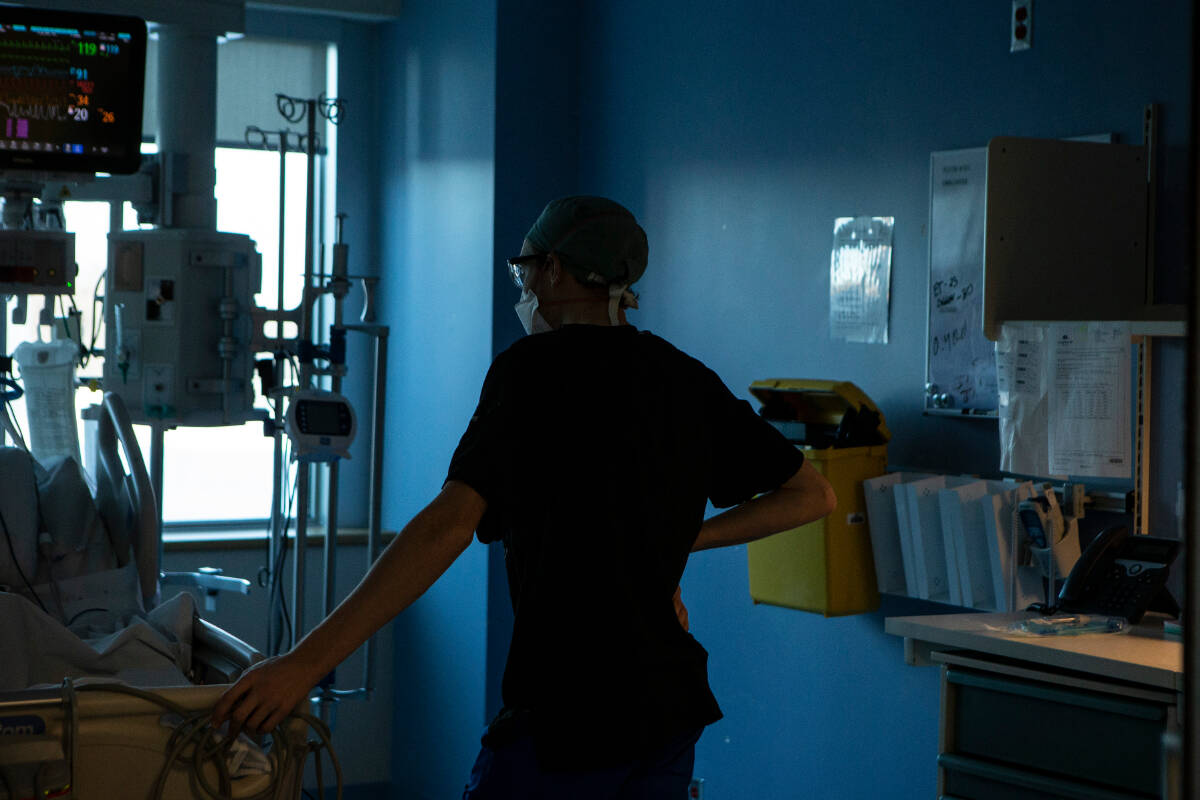Two years into the pandemic, B.C.’s nurses are burnt out, stressed and increasingly angry at their employers.
“This is the reality that we’ve been living for a long time and it’s continued to get worse,” BC Nurses’ Union president Aman Grewal said.
A survey conducted by the BCNU found that 35 per cent of all nurses said the experience of the pandemic has made them more likely to leave nursing in the next two years and 51 per cent of emergency and ICU nurses said the same.
READ MORE: B.C. nurses, doctors exhausted as next COVID-19 peak comes this week
Nurses have many concerns; chief among them is the staffing crisis plaguing B.C. hospitals. Two-thirds of nurses say staffing has been inadequate over the past three months, even as their workload has increased. That increased workload is taking a toll on the health and well-being of nurses, with 82 per cent saying their mental health has worsened and 65 per cent saying their physical health has worsened.
“The general public is just done and tired of COVID. They’ve got anger and they don’t know where to direct that anger, so they direct it at our nurses,” Grewal said. “Our nurses feel that pressure. They’re feeling very disrespected by their employer — the government — and even by some of their patients.”
Grewal shared a letter that detailed how nurses have had bedpans filled with urine thrown in their face, they’ve been kicked, scratched, spat on, threatened and intimidated.
“It’s not okay for our nurses to go to work and be assaulted. That doesn’t happen in any other profession and it shouldn’t be happening in nursing.”
Another top concern is a lack of access to personal protective equipment — 36 per cent of nurses say their employer has restricted access to PPE at their worksite. The most commonly denied PPE are N95 respirators, followed by face shields, surgical masks, gowns, gloves, goggles and other necessary items. Nurses say they were often denied because the items were “not needed” or there was insufficient supply.
“Right from the start, the ministry and Dr. Bonnie Henry were not recognizing COVID as an aerosolized virus — they were saying it was a droplet and that N95s were not required,” Grewal said. “We’ve always been saying that COVID is aerosolized. It sits in the air for a significant amount of time, it’s not a droplet that drops onto a surface and that’s it — it lingers in the air.”
READ MORE: Some nurses still don’t have proper COVID-19 personal protective equipment
Grewal added that the fit-testing required to ensure nurses have the proper respirators for their face shape is not occurring in long-term care or community health. In many acute care sites, nurses have to ask a security guard or a supervisor for access to N95s.
The BCNU is calling on the government to give unfettered access to PPE. They’re also calling for protection service officers to be posted at health care sites to prevent nurses from being assaulted by patients.
To address the staffing crisis, the BCNU is calling for general pay increases, tax incentives and student loan forgiveness as a way to attract more nurses to the profession. They also want to see more mental health supports coupled with time off so nurses can recover from the stresses of their job.
“Nurses do so much and they take on so much. Right now they’re saying they just can’t cope anymore. It was a job they loved and it’s taking a physical and mental toll.”
Grewal hopes that the general public will join the BCNU’s Speak Up and Speak Out campaign where constituents can send letters to their MLAs demanding better working conditions for nurses.
@SchislerCole
cole.schisler@bpdigital.ca
Like us on Facebook and follow us on Twitter.

